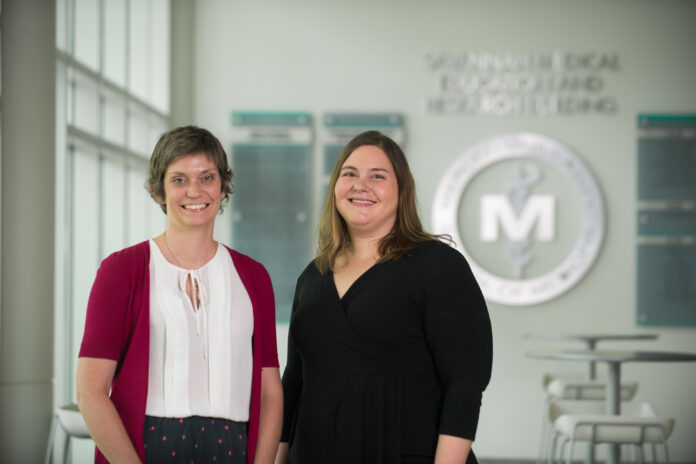SAVANNAH – An interprofessional project led by Mercer University School of Medicine (MUSM) faculty aimed at researching the use of telehealth to help farmworkers access mental health services has been selected for an American Association of Medical Colleges (AAMC) Telehealth Equity Catalyst (TEC) Award.
Recent research conducted by the Georgia Rural Health Innovation Center shows an alarming mental health crisis for the state’s farmers, finding that more than a quarter of respondents reported thinking of dying by suicide at least once per month. This project, “Implementing a co-curricular interprofessional education program to improve farmworker access to mental health services in rural GA” aims to offer solutions for meeting these mental health care needs.
Led by Dr. Kimberly Roth, assistant professor of community medicine and Dr. Janine Chalk-Wilayto, associate professor of anatomy on the Savannah campus, the project team also includes faculty from Mercer’s Master of Family Therapy (MFT) and Physician Assistant (PA) programs. Building coordinated care teams of students from the M.D., PA, and MFT programs, this learning module will teach these students how to integrate mental health care into primary care.
“By bringing students into the field, we’ll be helping these future providers be more comfortable with meeting the needs of this population,” said Dr. Roth. “They’ll learn appropriate actions to take as a primary care provider in a rural area.”
In addition to working in a highly stressful occupation, farmworkers face structural barriers to mental health care such as transportation, cost, access to Spanish-speaking providers and the migratory nature of their work. To address these barriers, the project will study the feasibility and acceptability of using telehealth to access mental health services.
“Dr. Roth and the interdisciplinary teams will address issues identified in a study led by Dr. Anne Montgomery and the Georgia Rural Health Innovation Center PhD students,” said Jean Sumner, M.D., FACP, dean of MUSM. “Addressing health issues in farmworkers and rural communities is fundamental to our mission, and this effort demonstrates the ability for research to result in real-world solutions in rural communities.”
The first phase of the project will be to develop curriculum to train students in telehealth and cultural competency for this population. Faculty will develop modules mapped onto the National Council for Mental Well-Being Core Competencies to build coordinated care teams of students from each academic program to address mental health issues. The curriculum will integrate feedback from the students, community health partners and clinical preceptors, as well as training with standardized patients.
University faculty involved in the project are:
- Bonzo Reddick, M.D., health director, Georgia Department of Public Health Coastal District
- Andrew Benesh, PhD, LMFT, assistant program director, Master of Family Therapy
- Jill R. Mattingly, DHSc, MMSc, PA-C, Chair, Physician Assistant Studies
- Erin Fitzpatrick Lepp, MMSc, PA-C, coordinator, PA Community Engagement
- Sherrie Williams, director of operations, Georgia Partnership for Telehealth
During the second phase of the project, students will enter the field with pilot testing at farms in Toombs County. Medical students will start with primary care screenings assessing the physical and mental well-being of the patient, then connect virtually with PA and MFT students to coordinate care. Psychiatric residents from Gateway Behavioral Health, under the supervision of Krystle L. Graham, D.O., will be on-call for consultations.
Community partners include the Toombs County Family Connection.
The Telehealth Equity Catalyst (TEC) Awardswere launched in 2021 as part of the AAMC’s efforts to continue supporting its members’ work to advance telehealth equity. Mercer will be awarded $15,000 to help finance its proposed programming. This project was selected according to the AAMC’s criteria of reflecting innovative contributions to health care delivery that can serve as models for other institutions to address and mitigate the barriers to care associated with telehealth, particularly for communities that are under-resourced with limited access to health care services.
“I’m excited to see the TEC community grow and look forward to continued partnership with our new cohort of the 2023 TEC Award recipients,” said Lisa Chew, M.D., MPH, AAMC director of clinical innovations. “By leveraging technology and community collaborations, academic medicine will continue to be a leader in improving access and equitable care.”










